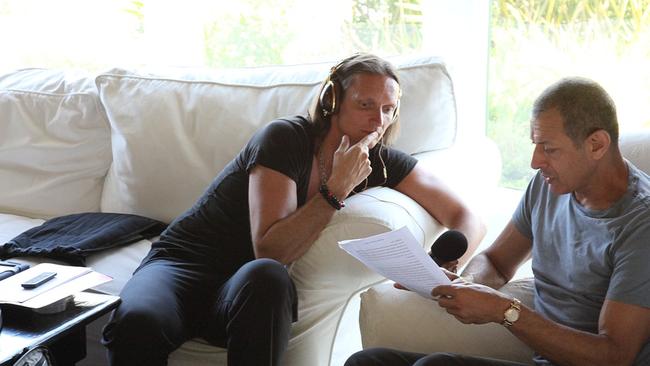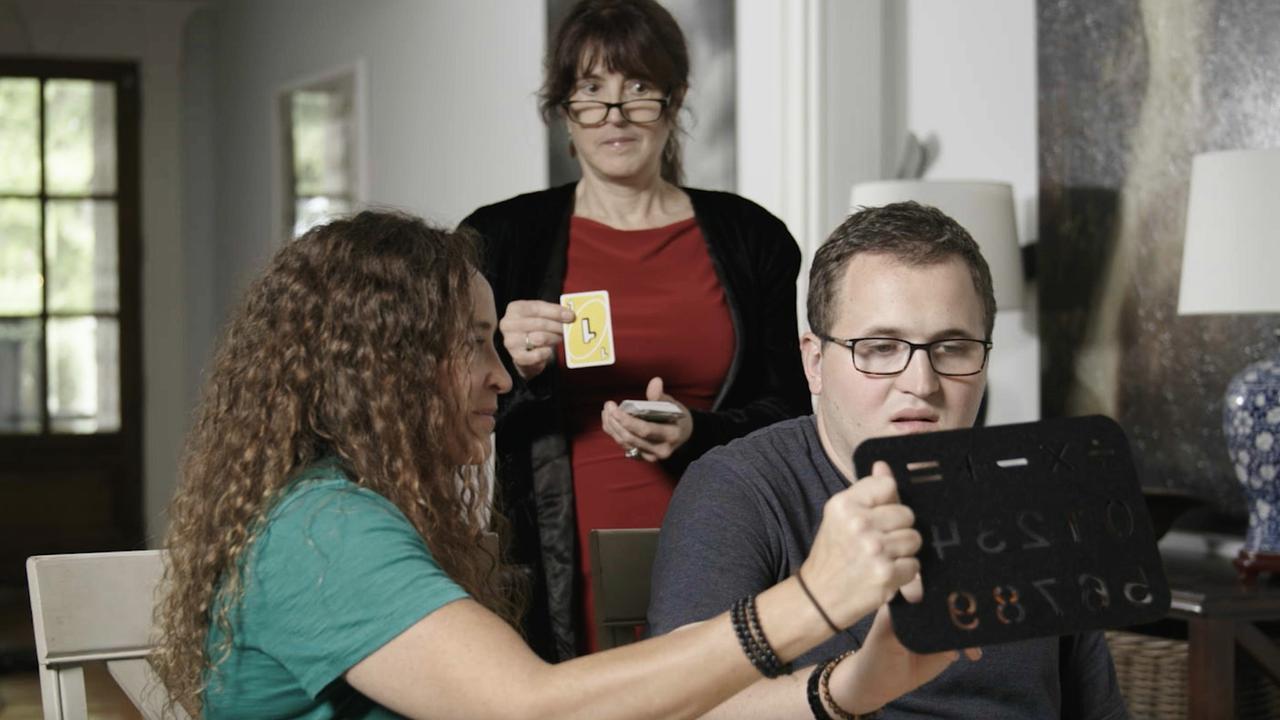Jennifer Aniston, Kevin Spacey et al a mixed blessing for Shaun Monson in Unity
Using famous actors such as Kevin Spacey in his doco Unity was a mixed blessing for filmmaker Shaun Monson.

For Shaun Monson, celebrity is a curse and a crutch. Not his own celebrity, but the 100 famous faces who narrate his documentary Unity. The personal, new-agey exploration of existence has a red carpet full of stars reading Monson’s script about love, peace and understanding, including Jennifer Aniston, Susan Sarandon, Kevin Spacey, Jeff Goldblum, Helen Mirren, Michael Gambon and Australians Geoffrey Rush, Joel Edgerton and Rose Byrne.
The long list of stars lending their voices and credibility to the project means the film has generated some buzz for its global release this week. But the celebrity attachments also meant the film’s fundraising campaign through Kickstarter failed. Monson sighs.
“We already had a few cast members, and a lot of people said, ‘Why don’t you ask your cast for money?’,” he says with a laugh. “I don’t think we recovered from that.”
More stars, however, jumped on board and Monson’s seven-year project has made it to the line.
“I sort of felt like I was pregnant for the last seven or eight years and I’m so ready to give birth now,” he says. “But I’m not nervous about it. I think it could do the world good. Considering all the media and content that is released on a weekly basis and how the world is fed, I don’t think it will hurt the world to have something like this be out there as well.”
Unity is at times powerful and naive, and sometimes entrancing. The compilation of images and clips, similarly, lurches from beautiful to bracing as the stars take their turns narrating particular lines in what is essentially a lecture.
Monson, a Los Angeles-based director and producer who made the animal welfare film Earthlings in 2005, calls the piece his “text”. It passed through 45 drafts and might have become a book but his love of music and pictures pushed him to this hybrid offering that recalls films such as the Koyaanisqatsi series, although in terms of polemics it’s a different beast.
Interestingly, he didn’t give the full text to any of the narrators. He gave them two to three pages each, chosen to match their persona or beliefs where possible, and spent four years gaining their trust and recording their lines.
The editing then became difficult as different people recorded at different cadences, tempos and volumes, and in different parts of the world.
Not having seen the full text makes it a huge leap of faith for the participants, hence the film’s opening disclaimer. But Monson hasn’t experienced any blowback, and doesn’t expect it.
“What’s the worst that can happen?” he asks. “Someone saying we should keep having wars? That we should keep destroying the planet? The animal component, maybe that’s touchy for people, but it’s only about 14 minutes in a 98-minute film.
“I tried not to blame any particular company or take any political stance or point at any one religion or group and rather just generalise these opposites we see in one another and the collision we come into all the time.”
Monson doesn’t intend to push any political agenda. He’s a relaxed cat, having done his work and hoping it plants some seeds. He doesn’t want to force it on to anyone. That would clash with his vibe.
“What bothered me the most — I guess like any inspiration that comes to any artist in any field, or any individual when you feel compelled to tackle something or address something — it sounds silly but I couldn’t figure out why human beings have such a hard time getting along when we know we are different and have been different since the dawn of time,” he says.
“It may sound like not a very sexy topic but it seems to me absolutely fascinating that we can evolve the way we have, tremendously with the technology and science and mathematics and everything we can come up with, and yet we still have this difficulty unshackling ourselves from all these differences, which — without wanting to be too spiritual — must be one of the great lessons of life.”
Monson’s film philosophically takes the position that we are an insignificant part of something far greater. Despite his caution, he does hope the film has a certain spirituality, although he notes he is “not a religious person”.
He argues we sleep, or dream, for one-third of our lives, so spiritual or consciousness-based questions are considered valid even in the scientific community. We don’t truly control our bodies either, he says. They form of themselves. Similarly, when you dream you’re not really in control, your thoughts can’t be controlled.
“There are a great many things that are beyond our control and yet we think we are a body and a mind in control of everything,” he says.
“We’re here temporarily. These things seem like valid questions and I guess they seem like spiritual ones, but they don’t fall under any religion. They just seem to touch on something else about us, beyond the physical.”
Unity is in limited national release.


